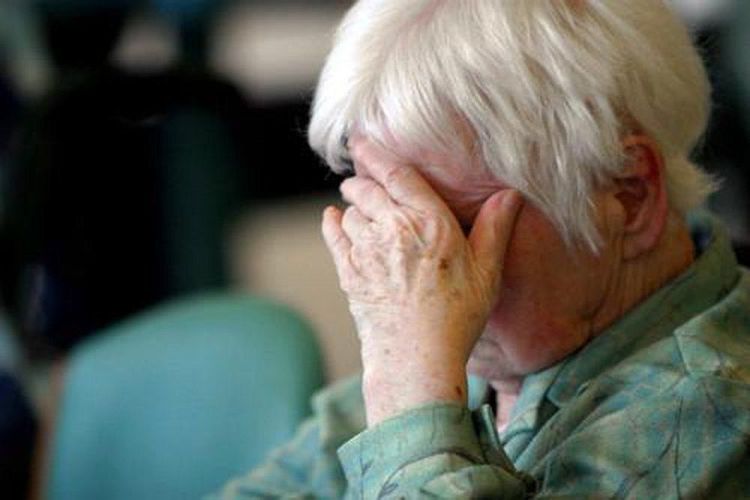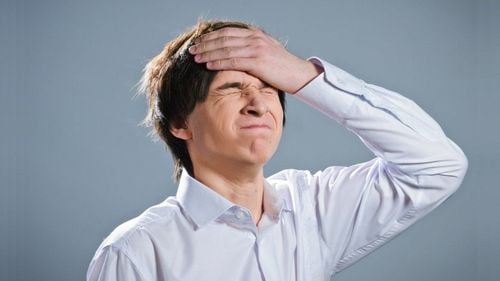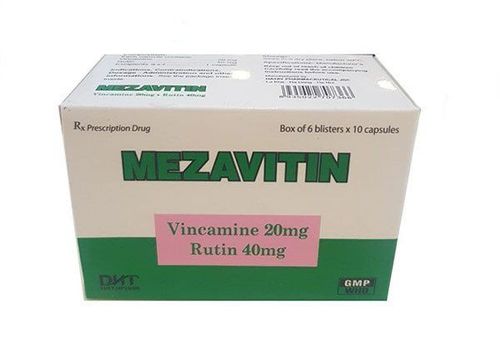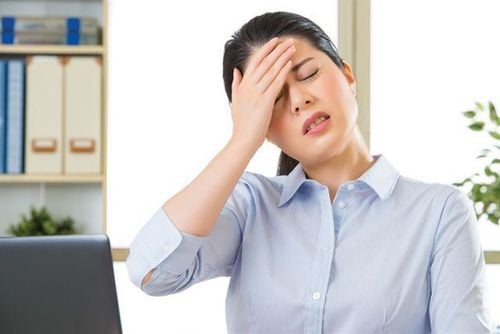This is an automatically translated article.
As we age, the body appears aging, so does the brain, it will gradually decline in function with age. Therefore, the elderly often show symptoms of memory loss. However, there are conditions that are not normal in the elderly. It's also a sign of a medical condition like Alzheimer's or another dementia that needs to be treated.
1. What is amnesia in the elderly?
As we grow up, we will have to go through physiological changes that can affect brain functions, so sometimes it takes longer to recall or retrieve previous information, you I feel like I'm not as fast as I used to be. Symptoms of memory loss are usually temporary and most of us can recall them with time to think. Mild amnesia is often a sign of aging, and while it can be uncomfortable, most people don't have a big impact on their lives and don't cause concern.
However, not all memory impairments in the elderly are physiological and result from aging. It is greatly influenced by your living process, lifestyle and daily living habits. If you feel that your memory is losing significantly, it is difficult to form new memories or memory disorders, this is a form of pathological memory impairment, not a condition related to the aging process. become again.
Thus, not all amnesia in the elderly is the result of aging. Severe cases of memory impairment are often caused by other factors at play with Alzheimer's disease or another dementia condition.
2. Causes of age-related amnesia
Three causes of age-related memory loss include:
The hippocampus, an area of the brain involved in the formation and retrieval of memories, typically declines with age. The hormones and proteins that protect and repair brain cells and stimulate nerve growth also decline with age. Older adults often experience reduced blood flow to the brain, due to problems related to blood vessels and the cervical spine, which can impair memory and lead to changes in cognitive skills.

Chứng hay quên của người già có thể do tình trạng máu lên não kém gây ra
3. Some measures to help improve memory in the elderly
Like muscles, memory can also be trained and improved by a number of measures, as well as a suitable living diet. Some ways to help improve forgetfulness in the elderly can be applied such as:
Keep calm, stay away from stress: Stress makes us less focused, thereby easily falling into forgetfulness. I can't remember what I'm planning or wanting to do. Stay away from alcohol and addictive substances: Drinking too much alcohol will be toxic to brain cells, alcohol abuse will lead to memory impairment. Over time, alcohol abuse can also increase the risk of dementia. Get enough vitamins, especially vitamin B12: Vitamin B12 protects nerve cells and is important for the brain to function properly. In fact, a lack of B12 can cause permanent brain damage. Older adults have a slower rate of nutrient absorption, which can lead to poor absorption of vitamin B12. Therefore, attention should be paid to increasing the vitamin B12 rich diet for the elderly, if vitamin B12 deficiency is resolved, you can reverse memory related problems. Exercise your brain regularly by discovering new things in life, reading a new book, playing a new intellectual sport, taking courses to improve social communication. Eat a healthy diet: Increase the amount of fruits, vegetables, whole grains and low-fat protein in your daily diet. Stay hydrated every day: Older adults are especially susceptible to dehydration. Severe dehydration can cause confusion, drowsiness, memory loss, and other dementia-like symptoms. It is important to drink enough water, try to drink 1.5-1.8 liters of water per day depending on weight. Special attention should be paid to if you are taking diuretics or laxatives or have diabetes, high blood sugar, or diarrhea, your fluid intake should also be adjusted accordingly.
Exercise: Please choose a sport suitable for your physical and health. Regular exercise helps reduce stress, keep a more optimistic mood. Watch out for certain medications: Many prescription and over-the-counter drugs or combinations of drugs can cause cognitive problems and memory loss as a side effect. Therefore, before using the drug, it is necessary to pay attention to the side effects and weigh the benefits and risks.

Đối tượng mắc chứng hay quên của người già cần lưu ý khi sử dụng các loại thuốc
4. When to See a Doctor for Amnesia
For most people, occasional short-term memory decline is a normal part of the aging process. However, it is also possible that some signs of amnesia are the beginnings of Alzheimer's disease or another dementia.
If you or a loved one experience the following signs, you need to see a doctor for examination and advice, including:
Difficulty in handling everyday things, but the things are almost familiar to me but very difficult to complete. It is an unusual sign that should not be ignored. Simple things that are also difficult to use, which you are very familiar with before such as not being able to know how to use the TV remote, how to use the microwave oven or more seriously, the fact that you cannot go to where you go every day like work, park, bookstore, grocery... When you drive out of the house and you can't remember where you left your car. If it happens often is also a sign that cannot be ignored. Often lost track of time like can't remember what day it is, what day it is, what season... Forgot where you are, can't remember how you got to where you're standing and need help. Can't or often make mistakes when speaking, can't put sentences together into complete sentences, is missing words, or you can't express something you know well. Difficulty naming or naming previously known objects such as combs, knives, scissors, chopsticks, bowls, etc. Amnesia accompanied by loss of interest in social relationships, avoidance of friends, loved ones, avoid events that you previously enjoyed. Can't remember family members, can't remember their names and relationships to me. As we age, the aging process also causes our memory to decline to a certain extent. But if your memory is abnormally impaired, seriously affecting your life, you need to be examined by a specialist.
Please dial HOTLINE for more information or register for an appointment HERE. Download MyVinmec app to make appointments faster and to manage your bookings easily.
References: webmd.com, helpguide.org, healthline.com












